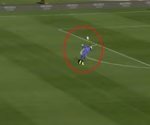Sattler: biggest failure in my mandate was lack of real reconciliation in Bosnia

Johann Sattler, Head of the EU Delegation in Bosnia and Herzegovina, stated at the end of his five-year mandate that his biggest failure was the lack of an agreement on electoral reform in the country. Despite investing significant energy and time, a solution was not reached due to a lack of political courage, he said in an interview with Banja Luka's "Nezavisne novine" daily published on Monday.
Oglas
Sattler, who will step down from his position at the end of this month, expressed disappointment that his efforts did not lead to a resolution.
"Don't forget that Bosnia and Herzegovina's electoral legislation is not aligned with the European Convention on Human Rights. This is no small issue; there are rulings that must be implemented. We were close to a solution, but there wasn't enough political courage and wisdom for the final step. I wish I could have completed this," Sattler stated.
Why was there no agreement?
In collaboration with the US administration, the EU Delegation in BiH was directly involved in attempts to reach an agreement among political parties in Bosnia on how to implement the rulings of the European Court of Human Rights, which found that BiH citizens are discriminated against in the electoral process based on their ethnicity or place of residence.
An agreement has not been reached because the Croat Democratic Union (HDZ BiH) insisted that the issue of electing the Croat member of the BiH Presidency be resolved as part of the package. Still, all proposed solutions were rejected by the Bosniak side, arguing that they only introduced new forms of discrimination, Nezavisne wrote.
The coming year could be crucial for new attempts at an agreement, as the next general elections in BiH are set for 2026, and before that, the issue of Zeljko Komsic’s election as a Croat member of the BiH Presidency with alleged Bosniak votes needs to be resolved.
Lack of true reconciliation is another major failure
Sattler also cited the lack of true reconciliation in BiH as another major failure during his mandate, specifically the failure to recognize the suffering of all war victims from 1992 to 1995.
"I truly hoped we could achieve more," he said.
He further expressed frustration with the behaviour of BiH politicians and the country’s system, which offers endless possibilities for blockades.
He concluded that progress is only possible if a culture of compromise develops, which is especially important in approaching EU membership.
Sattler is confident that the new European Commission will continue to work strongly on the enlargement process in the coming five years.
Kakvo je tvoje mišljenje o ovome?
Učestvuj u diskusiji ili pročitaj komentare
Oglas
Kakvo je tvoje mišljenje o ovome?
Učestvuj u diskusiji ili pročitaj komentare
Oglas





 Srbija
Srbija
 Hrvatska
Hrvatska
 Slovenija
Slovenija



























































